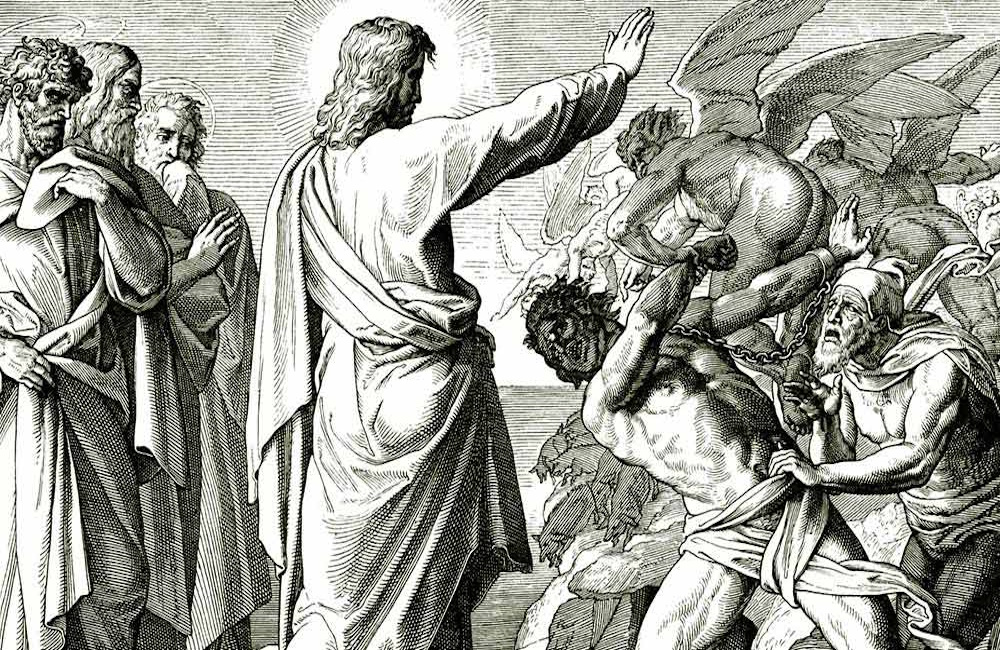The identity of Jesus is central to the Christian faith, yet He also appears in Islamic teaching under a different form. In the Bible, He is named Yeshua (Greek: Iesous, rendered “Jesus” in English), the Savior whose name is filled with divine authority. In the Qur’an, however, He is consistently called Isa. At first glance, this may seem a minor linguistic difference. But in light of biblical teaching, the question of His name becomes one of profound theological weight.
The Biblical Witness to the Power of the Name
In the New Testament, the name of Jesus is not a mere label, but a vessel of authority, truth, and salvation.
The Apostle Paul writes in Philippians 2:10–11: “That at the name of Jesus every knee should bow, in heaven and on earth and under the earth, and every tongue acknowledge that Jesus Christ is Lord, to the glory of God the Father.” This shows that the name of Jesus—not any other name—is the one before which every creature, both human and angelic, must bow. The spiritual world recognizes its power, and even demons are forced into submission by it.
Jesus Himself declares in Matthew 28:18: “All authority in heaven and on earth has been given to me.”
The authority of Christ is absolute, universal, and inseparable from His name. In the book of Acts, the apostles repeatedly heal and drive out demons in the name of Jesus, and the enemies of the Gospel recognize that this name alone carries divine power (Acts 4:12; Acts 16:18).
Yeshua versus Isa: A Question of Authenticity
The Hebrew form of the Savior’s name is Yeshua, meaning “The LORD saves.” The New Testament, written in Greek, renders this as Iesous, from which the English “Jesus” derives. Early Christians across cultures—from Jerusalem to Antioch, from Rome to Ethiopia—confessed Him by this name. Importantly, even in Arabic the original name of the Savior is preserved as Yesua (يسوع). To this day, Arabic-speaking Christians use Yesua when referring to Jesus, showing continuity with the biblical and historical tradition.
The Qur’an, however, written more than six centuries later, presents Him as Isa. Scholars debate the origin of this form: some argue it reflects an altered borrowing from Syriac or Arabic dialects, others suggest it was deliberately distinguished from the Christian name. Whatever its roots, it is striking that the Qur’an does not preserve the original, biblically attested name. For Christians, this raises a serious question: if the Bible insists on the holiness and power of the true name, how can a revelation that introduces a changed name claim to come from the same God?
Testing Revelations: The Apostolic Command
The Apostle John warns believers: “Beloved, do not believe every spirit, but test the spirits to see whether they are from God, for many false prophets have gone out into the world.” (1 John 4:1). True revelation will always confess the real Jesus—His true identity, His true name, His true work on the cross and resurrection. Any message that distorts these marks of truth must be carefully weighed. If, as Philippians teaches, every being must bow to the name of Jesus, then a message that avoids or alters that name is suspect. Christians therefore hold that the Qur’anic portrayal of Isa does not align with the Jesus who said:
“All authority in heaven and on earth has been given to me.” (Matthew 28:18)
The Early Church and the Preservation of the Name
From the earliest days, the Church Fathers testified to the power of the name of Jesus. Justin Martyr (2nd century) wrote that demons flee from it, and Origen noted that the name was effective in exorcisms when invoked in faith. This echoes the apostolic experience in Acts, where miracles and deliverances occur in the name of Jesus Christ. The fact that Christians across languages and lands—Greek, Latin, Coptic, Syriac, and Arabic—preserved the core sound of Yeshua testifies to its sanctity. To present Him under a name unknown to the apostolic witness introduces confusion at the very level where clarity is most needed: who the Savior truly is.
Conclusion: The Name Above Every Name
For Christians, the name of Jesus (Yeshua) is not merely historical—it is the name through which salvation is given, authority is exercised, and truth is revealed. As Paul declared: “There is salvation in no one else, for there is no other name under heaven given among men by which we must be saved.” (Acts 4:12).
This conviction leads Christians to ask: if God gave one name under heaven by which salvation comes, why should it be altered? The difference between Yeshua and Isa is therefore not a trivial matter of translation, but a dividing line between two understandings of Jesus.
The Bible proclaims a risen Lord whose name is above every name, before whom every knee shall bow. The Church holds fast to this confession: that Jesus Christ is Lord, to the glory of God the Father. Any teaching or revelation that replaces His true name, diminishes His authority, or denies His death and resurrection must therefore be tested. According to Scripture, the revelation that Gabriel supposedly gave to Mohammed came from the devil, because such a message cannot come from the Spirit of God, but must come from another source opposed to the truth.
